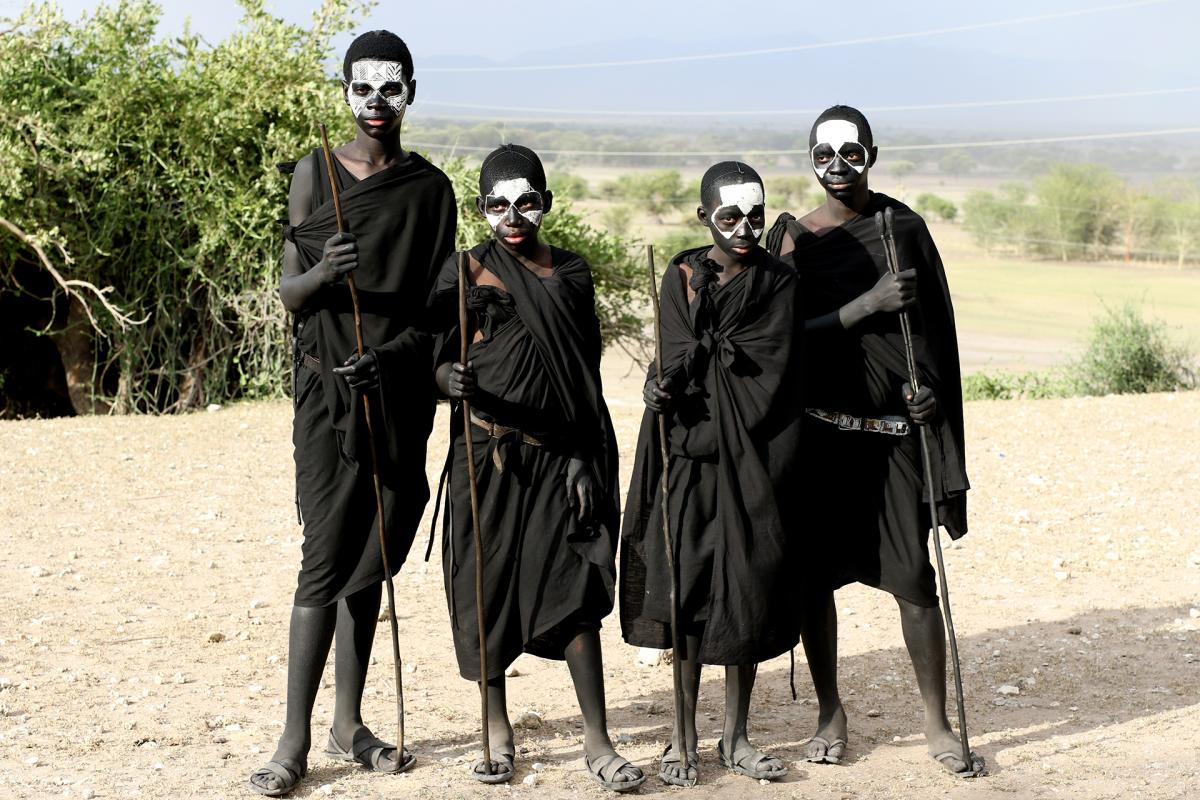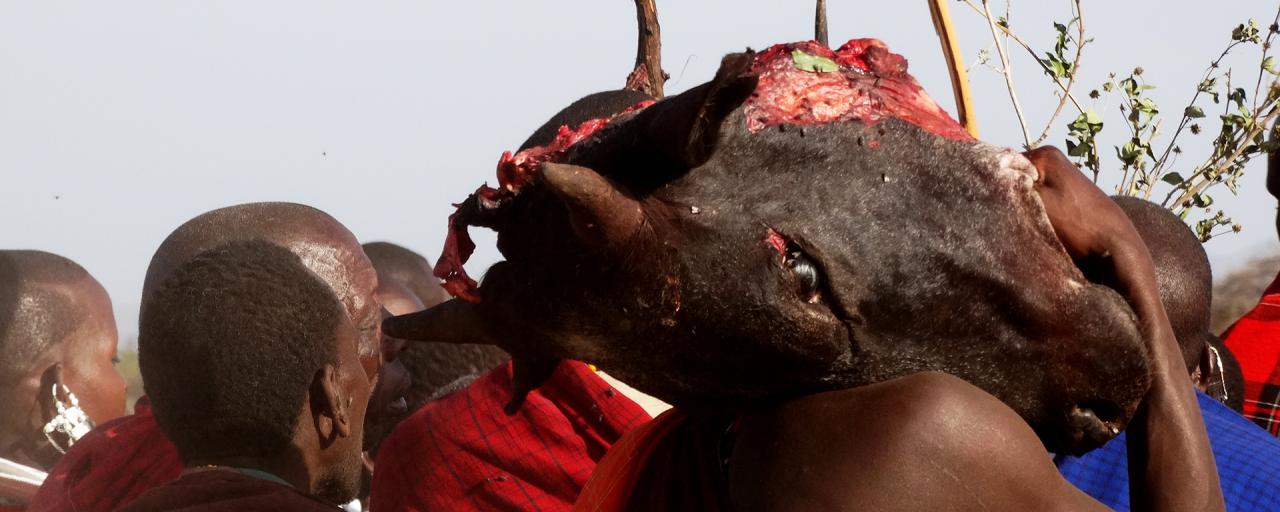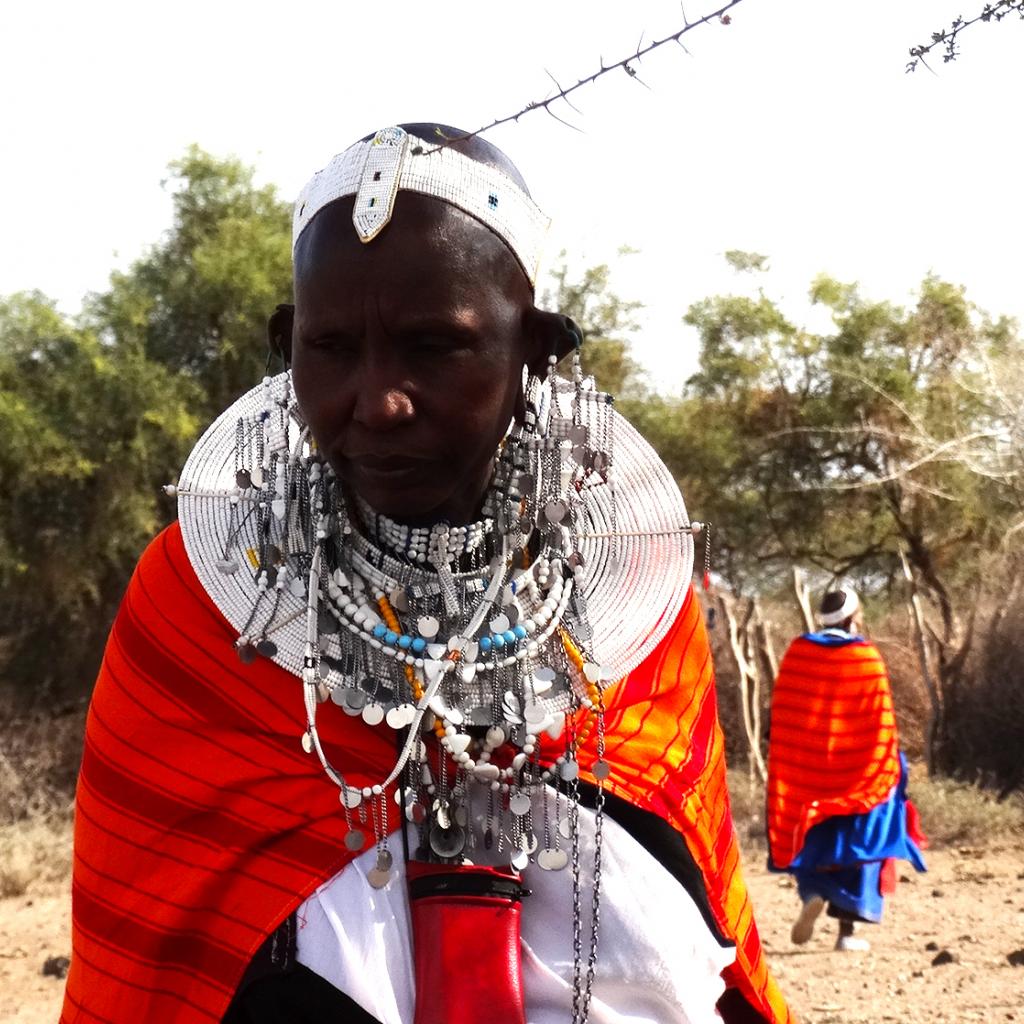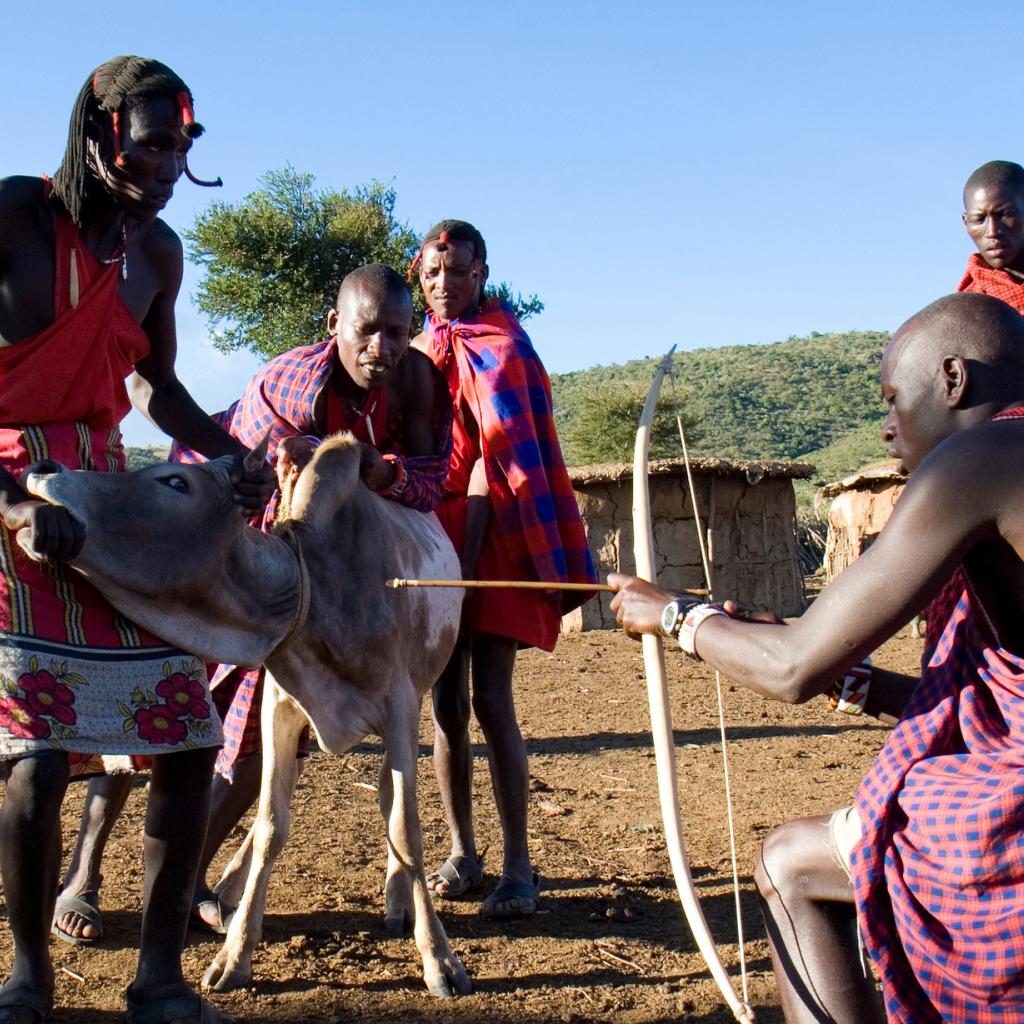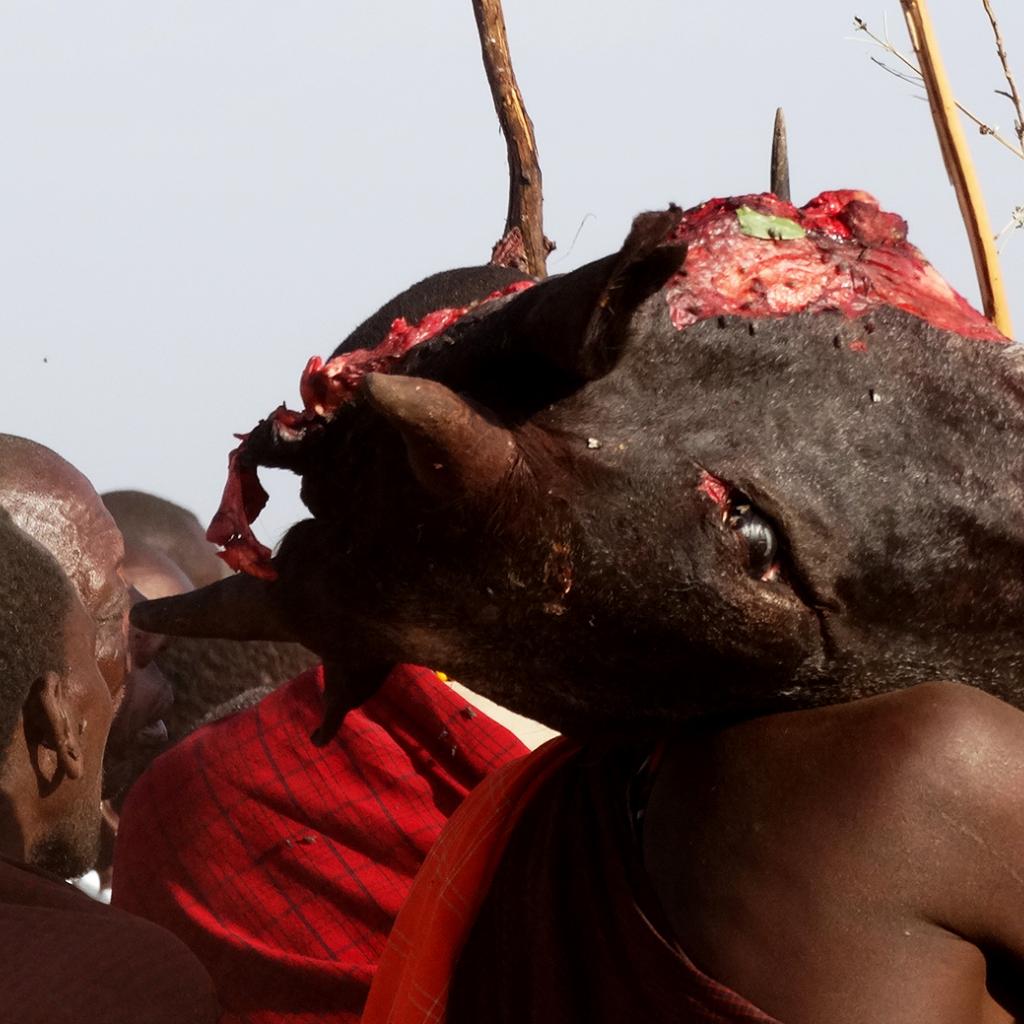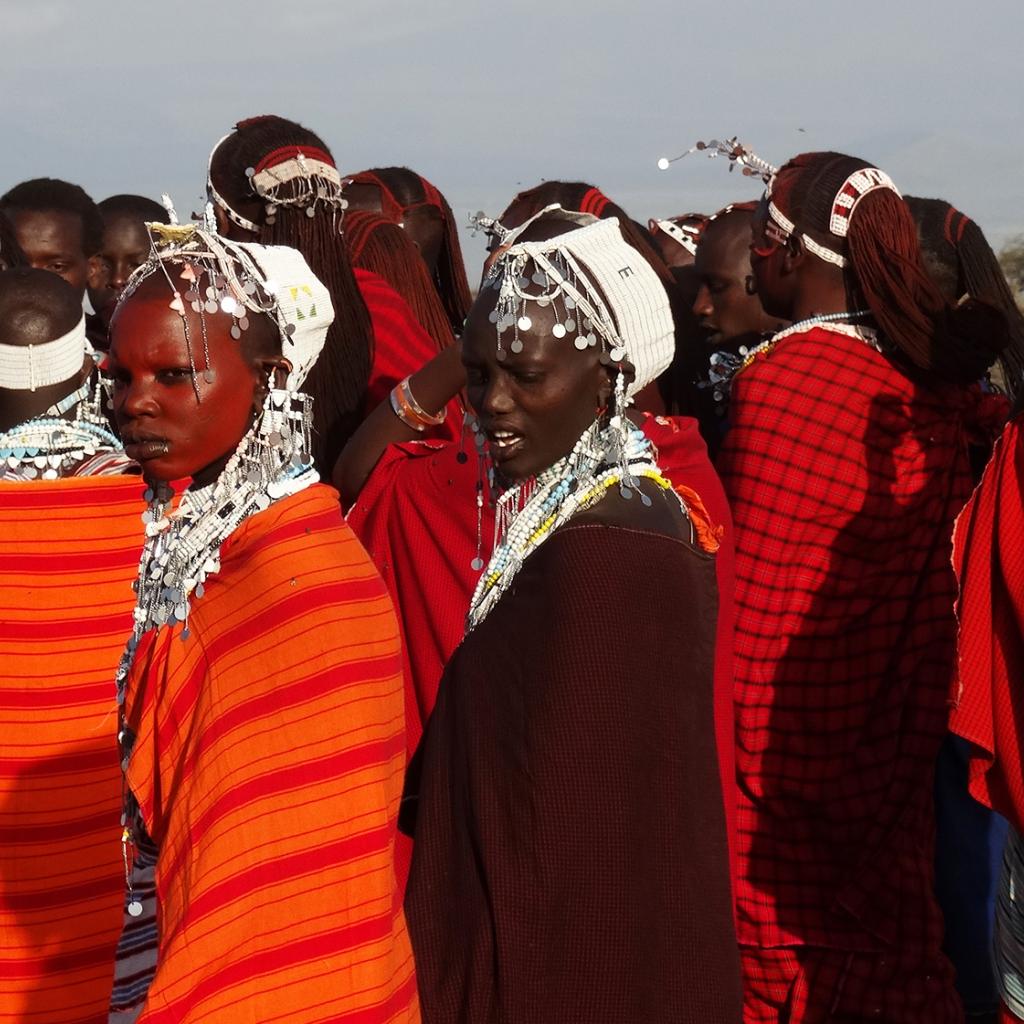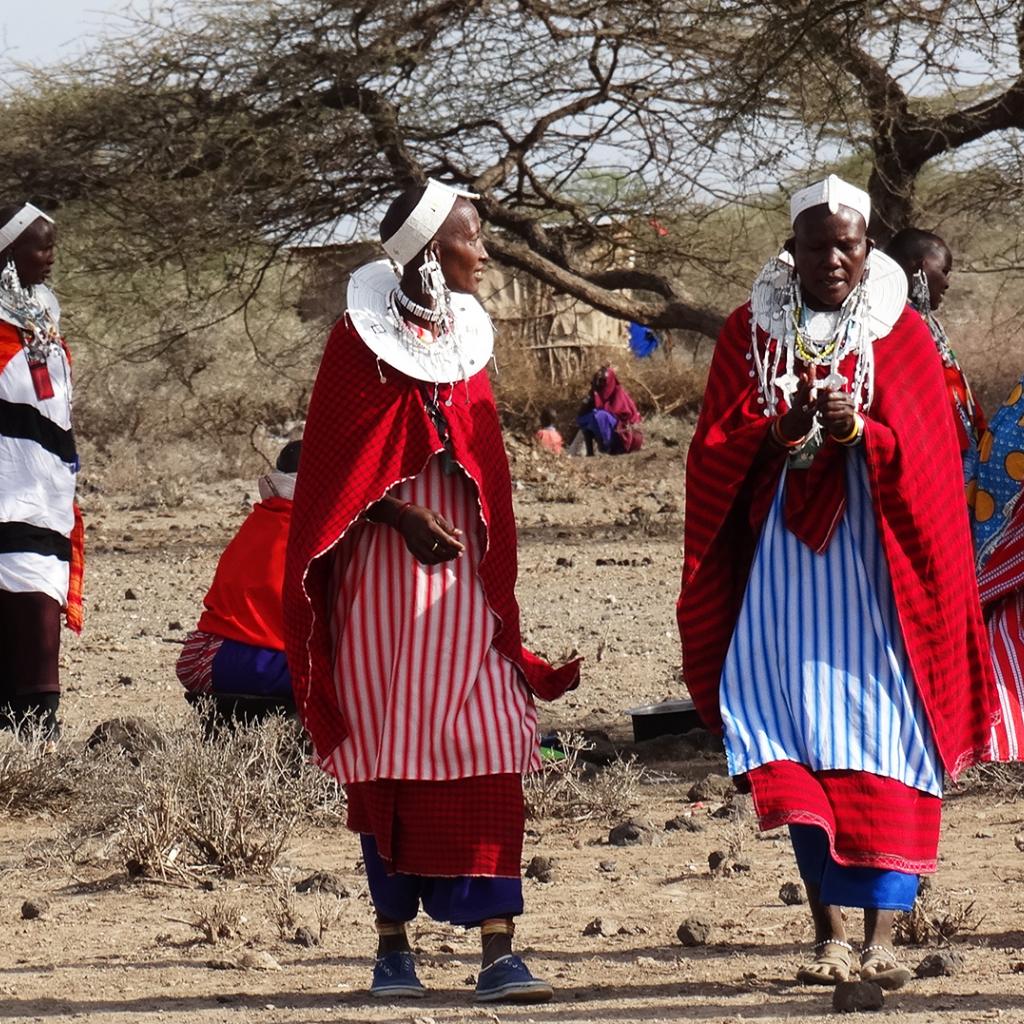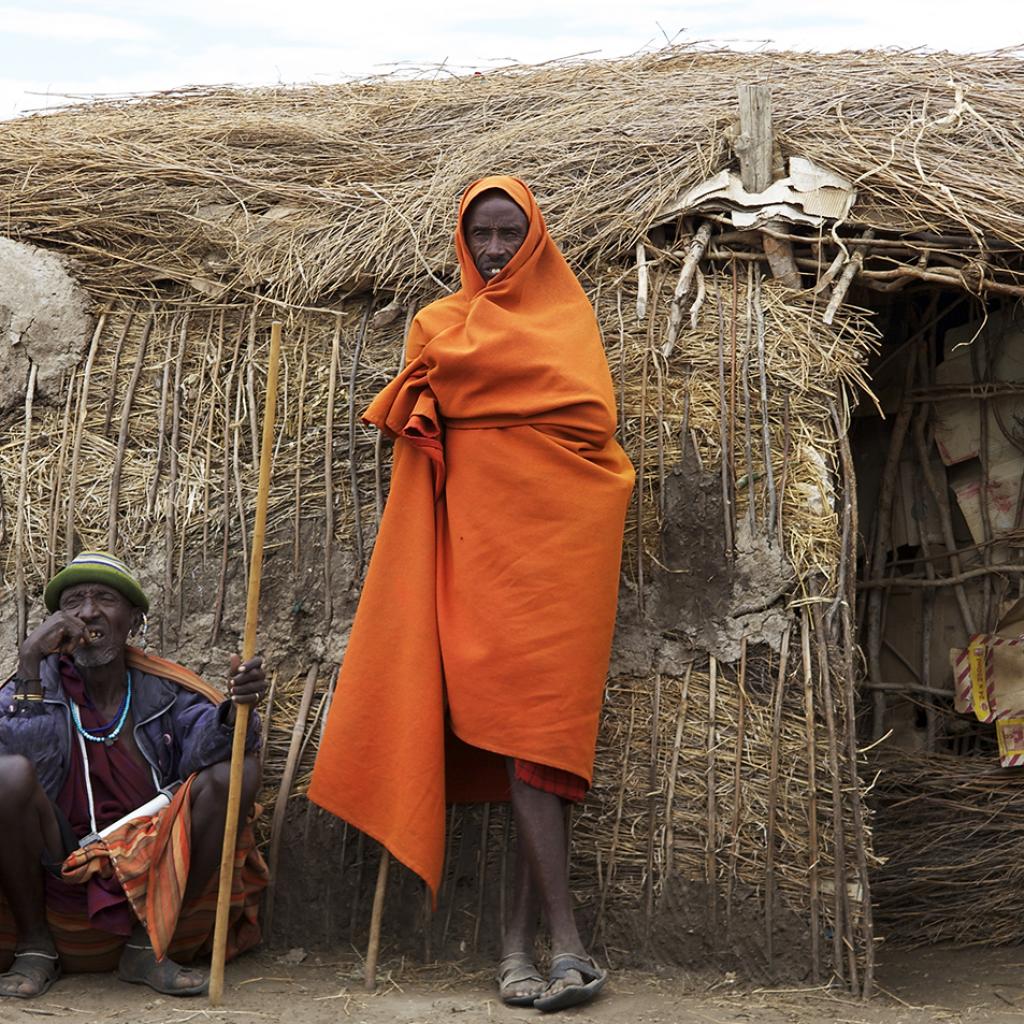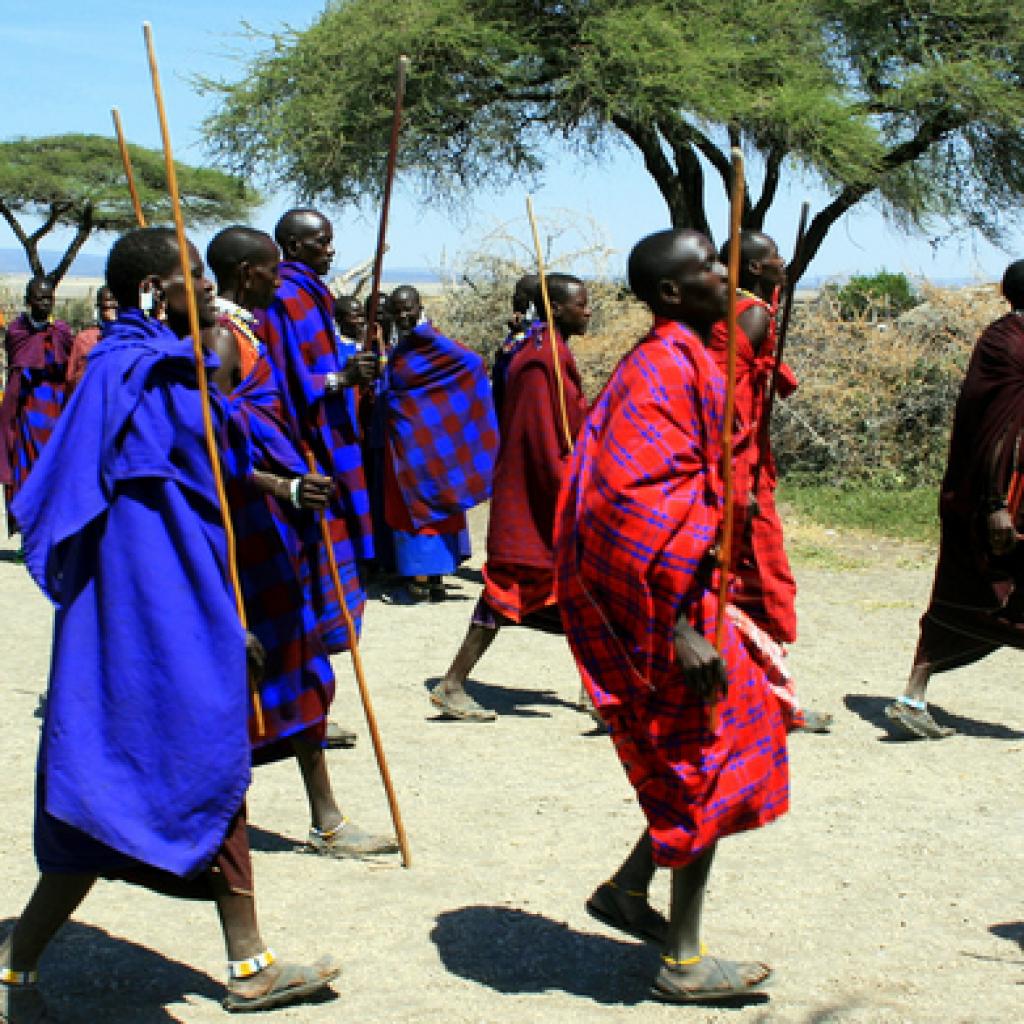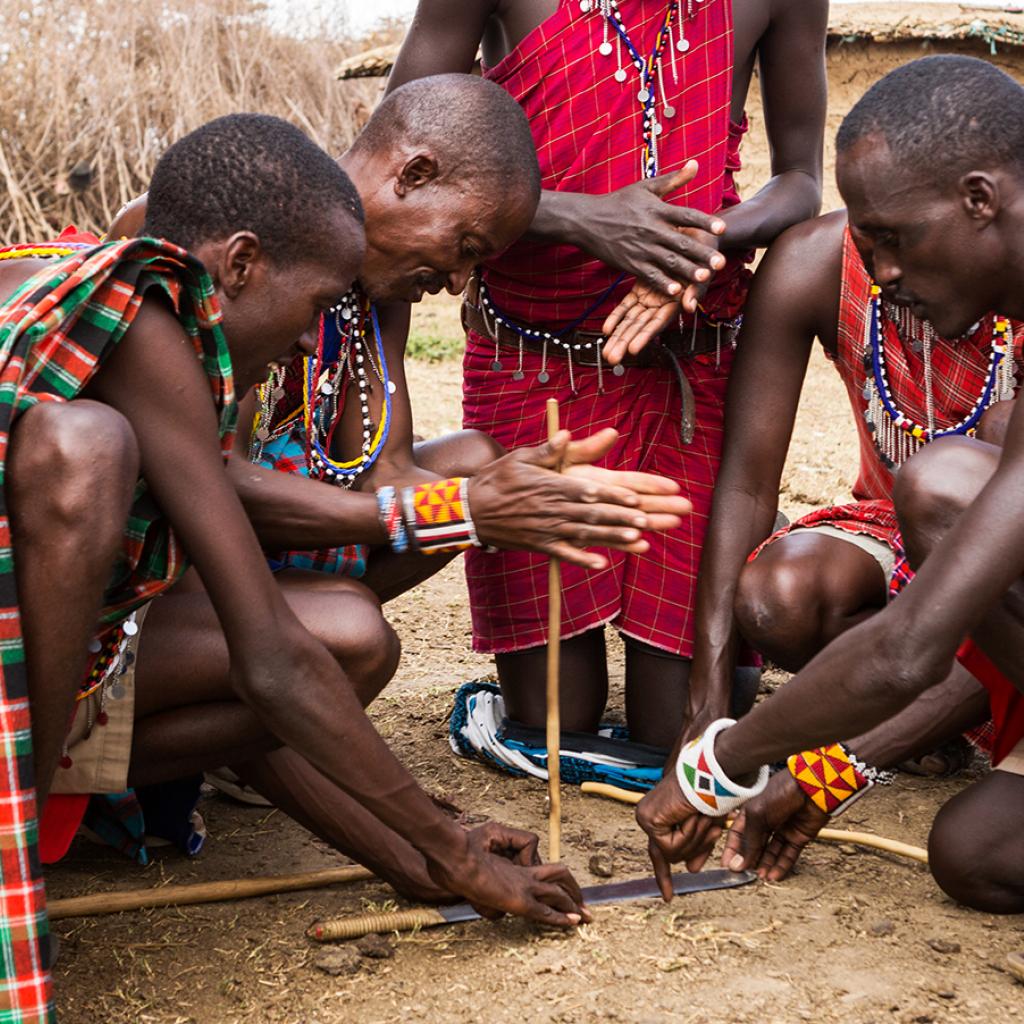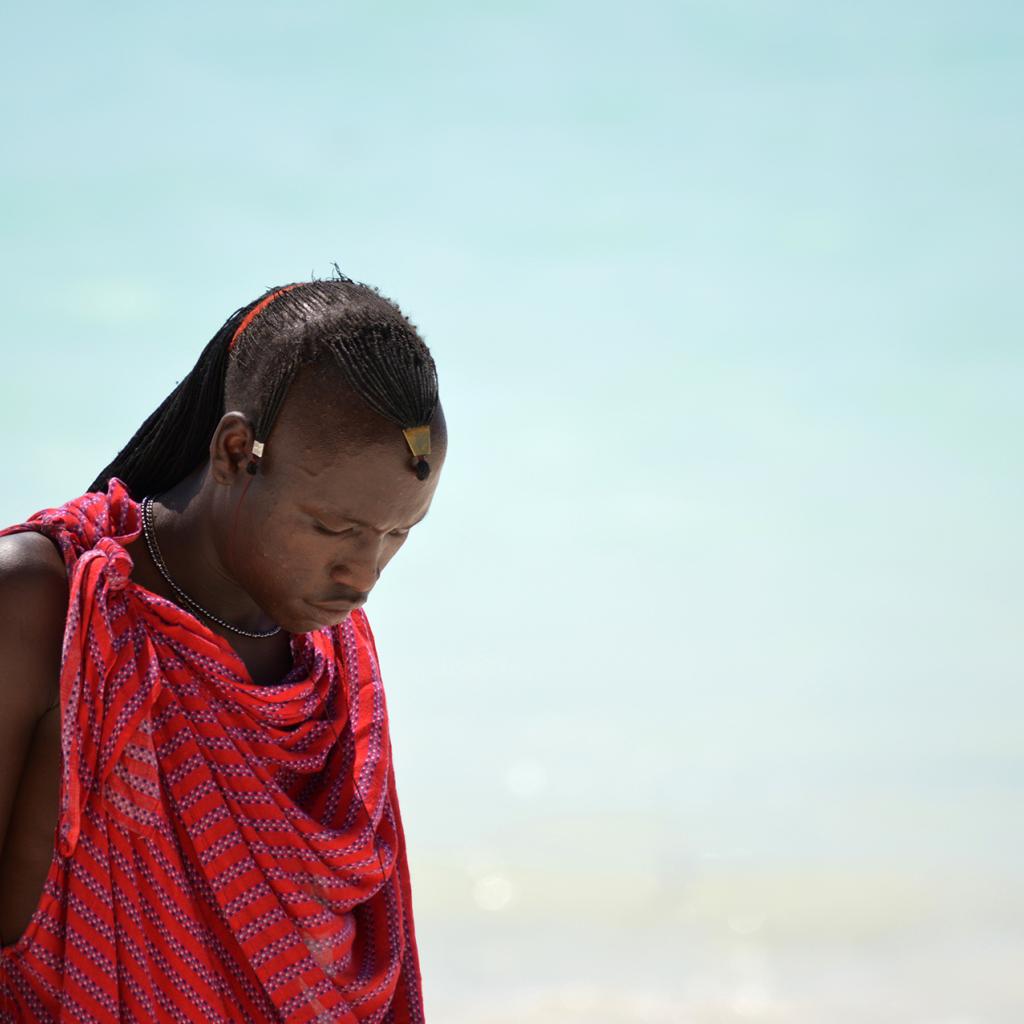According to traditions, like in most societies of animistic religion, the Maasai practice many ritual ceremonies, many of them, though, are being forgotten and left aside today, this has happened because of the contact with other very different cultures and partly because of progress.
However, there is a Maasai belief bearing a warning for future generations; it goes like this: “It takes a day to destroy a house, and months, maybe years, to build a new one; if we abandon our lifestyle to construct a new one, it will take thousands of years”.
Many Maasai rituals symbolize a passage from a life phase to the following one; as a matter of fact, Maasai society is organized in groups divided according to age, this being said for men and women alike.
Maasai men have three phases: childhood, warriors, elders; women, on the other hand, only have two stages, with childhood and teenage years grouped together and adulthood afterwards.
The first initiation of a Maasai boy is the Enkipaata, a ceremony occurring before circumcision.
A delegation of boys between 14 and 16 years of age, has to go on a journey within their lands announcing their next age set, this journey is taken with the company of a group of elders who guide them.
A few days before the circumcision each boy has to undergo another trial: he has to gather the cattle for seven days in a row, if he manages to carry out this duty correctly, his circumcision will take place on the eighth day.
Before the ceremony, boys have to sleep outside the village in the savannah; the following day, when coming back, they have to wear wide robes and dance all day long.
At the end of this last ceremony, the boys are finally ready for the most important initiation: the Emuratta or circumcision.
Just before the operation, boys have to take a cold shower to purify themselves and also cut their hair by shaving them completely; before every ritual of passage, both for men and women, the Maasai shave their head as a sign of a new beginning.
During the walk towards the place where the operation takes place, the boys receive shouts of encouragement from their companions and from other male members, sometimes, elders send them threats and challenging glares with the intention of spurring them on.
To enjoy a day with Maasai people book a luxury hotel in Amboseli National Park
Circumcision is carried out little before dawn from a qualified and experienced man; at the end of the operation each boy receives some head of cattle as a gift from his relatives and friends and he then becomes a Moran warrior.
This ritual of passage raises an individual from childhood to adulthood, the boys are given typically adult objects, especially a heavy spear, a herding cane for big herds and a shield.
Formerly, boys used to have to go to the savannah and kill a lion as a sign of courage, this practice has thankfully been abandoned, each year the lion population in Africa decreases, these wonderful animals have to be protected from poachers and primitive practices alike.
Afterwards, young warriors usually leave the village where they grew up and they move to another one, the emanyatta, with all the other young men; this village has a different structure from the family one; as a matter of fact, it is built purposely for these new warriors who will live here until the next ritual of passage.
The following ceremony in the life of a Maasai man is the Eunoto, marking the transition from young warrior to high level warrior; the waiting time between the two rituals often lasts 10 years.
This ceremony allows the warriors to leave the manyatta; they can now get married and are ready to become the heads of their families.
Each warrior has to cut his long ochre-colored hair before the ceremony, this process is carried out by mothers.
During the celebration it is forbidden to carry weapons, spears, canes and knives are to be left at the village.
The Eunoto consists of a trial of courage: an animal’s horn is thrown on a fire and the warriors have to pick up a piece of it before it is completely consumed by the flames.
The person who succeeds in doing so will be hit by misfortune, but if no one does it, then all the men in his age set will be cursed.
In order to obtain the elders’ blessing, warriors have to bring eight bulls, bred and raised by them in the previous months, as an offering.
A few months after the Eunoto ceremony, high-level warriors create a small field built ad hoc for another celebration: the milk ceremony or Enkang e-kule.
Before this celebration, a warrior cannot eat alone or in front of women. He always has to be with other warriors, drinking is forbidden in front of women, too, but it is possible to do it outside the village.
This prohibition to eat in front of women aims to teach young men to be self-sufficient and not dependent on their mothers for the preparation of food, furthermore, they get ready to adapt to hard environmental conditions.
During the milk ceremony, warriors drink for the first time in front of their female lovers.
Another ritual, following the milk ceremony, is the Enkangoo-nikiri, the meat ceremony, this ritual allows warriors to eat the meat prepared by village women, it is a very longed for event among warriors.
A purposely chosen bull is slaughtered for the ceremony, its hide is used for an important step, while its meat is cooked.
A wife has to ensure to her husband that she did not engage in any illegal sexual relationship with a younger or older man.
It is possible for her to have other relations but only with man of her own age, and not belonging to different age sets.
To acquire proof of this faithfulness, men resort to the “bull hide ritual”, where men of the same status have to fight each other, the goal is to get close to the bull hide to receive a confirmation of the wife’s faithfulness.
If a wife is guilty of adultery with a man of a different age, her whole class will condemn her and stop respecting her, in order to redeem herself she has to reach her father’s or her relatives’ house, and take a cow to give to her husband as an apology, no Maasai man would ever refuse such a gift.
At the end of the ceremony, men and women fight among each other to get the roast bull meat which will later be eaten.
The initiation ritual marking the passage from junior to elder begins with the donation of a chair to each man.
The morning of the celebration, a man sits on the chair and his wife cuts his hair, in case he has more than one wife, it is the oldest who has the honour to do it.
The gift chair becomes “companion” and “friend” to the man until it breaks. In case it does not break before his death, it will be given to his first-born son.
At the end of the celebration the man is established in his role of elder and takes on full responsibility for his family.
From that moment on, he can go away from his father’s cattle enclosure to form his own, and his own village, too, however, it is important for him to always listen to his father’s advice.
This last passage occurs around the age of 35.
Women, on the other hand, only have one rite of passage which occurs when they become adults, the ritual consists of the removal of the clitoris and, in some clans, even of the outerlabia.
The practice of infibulation is increasingly less practiced by the Maasai, but it is sadly still a custom in some of the clans.
In some Masai rituals the cattle plays an important role, showing how close these people are to their animals, there is, for example, a ritual against female infertility in which the girl who is unable to procreate has to pass under a cow that has recently given birth in order to receive its beneficial effects.
In funerary rituals, too, the Maasai show a cattle-related custom, they spread ox grease on their dead and then wrap them in bovine hide, later, the bodies are left in the forest for hyenas and other carnivores to devour them, if the corpse is not completely eaten by animals, this is considered as a bad omen.
East Africa is full of pagan and magic rituals, and some have been taken from Masai culture, too. Among them there is a peculiar and original one, carried out for good fortune and as a blessing: the spitting ritual.
People with Western habits are likely to consider it bizarre, hardly acceptable even.
It consists of presenting a guest with a bundle of grass on which to spit, and to Maasai people it is a symbol of friendship and benevolence.
